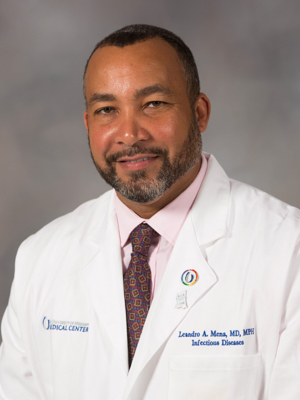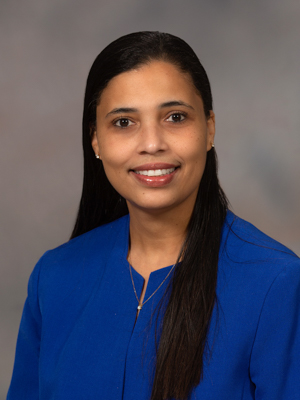New degree helps clinicians master population health management
Published on Thursday, September 13, 2018
By: Karen Bascom
A new degree program at the University of Mississippi Medical Center is preparing clinical leaders to apply population health principles in their practice.
The John D. Bower School of Population Health started classes in an executive masters of science in population health management August 20.
Population health is a multidisciplinary field that draws from the social and medical sciences, in addition to demography, epidemiology, and economics to quantify the conditions that shape health. It strives to determine why some groups of people healthier than others and what kinds of systemic changes can make these groups more equal in health outcomes.
 Beech
BeechAs applied to the health care system, population health management has been described as, “the aggregation of patient data across multiple health information technology resources, the analysis of that data into a single, actionable patient record and the actions through which care providers can improve both clinical and financial outcomes,” said Dr. Bettina Beech, dean of the School of Population Health.
In health care, this approach can be simplified into two goals: reduce spending and keep people healthy.
Dr. Leandro Mena, professor and chair of population health science, directs the executive master’s degree program. He said the United States still has plenty of work to do to meet these goals.
 Mena
Mena“One-sixth of our economy is health care, but we are 27th in health outcomes,” Mena said. “Health care in the United States is facing major changes as it moves towards a value-based care structure,” or one that bases physician reimbursement on care effectiveness rather than number of procedures.
UMMC’s Executive Master of Science in Population Health Management is the only degree of its kind in the southeastern United States. This 12-month program is specifically designed for clinicians with at least five years of experience. It is open across the spectrum of health care providers to physicians, pharmacists, social workers and other health-care professionals with terminal degrees. The online education model allows clinicians to continue working full-time.
“We made sure that the courses in this program are state-of-the-art, novel and defined in a way that is strategy-oriented and immediately applicable in order to improve the care that we give our patients,” Mena said.
 Gholar
Gholar“Health care changes rapidly,” said Vikki Gholar, director of strategic initiatives in the School of Population Health. She said the students will learn about health disparities, informatics, clinical coaching and accountable care organizations during the nine-week courses administered between now and graduation in May 2019.
Faculty for the courses will be based not only on the UMMC campus, but also at universities and health systems in other states.
“In these classes we are able to have experts share their experiences with population health, which helps students improve the care they deliver,” Gholar said.
Each of the first students are experts in their own right as clinical leaders at UMMC. Dr. Jermaine Gray, associate professor and interim chair of obstetrics and gynecology, said his “main motivation” for applying to and enrolling in the population health management degree is to learn how overall health care can be improved.
“The clinicians working in the trenches of health care don’t always know which tools will help manage patients in the best way,” Gray said. “Sometimes our health care delivery has good intentions, but we don’t know the barriers that exist or the reasons patients might be non-compliant in their care.”
Lorie Ramsey, director of coordinated care at UMMC, says the skills she will gain through this degree will help her and her team achieve any one of a number of quality goals for the Medical Center – whether that be decreasing readmissions for surgical patients with diabetes or streamlining the Medicaid enrollment process for eligible patients.
“It’s about changing mindsets in order to better assess the situations we face and provide proactive care,” Ramsey said.
The executive master’s degree is funded through a grant from the Bower Foundation, which supports programs focused on improving health of Mississippians. The foundation and the school are named for Dr. John Bower, a UMMC professor emeritus, nephrologist and patient care advocate.
“We are extremely grateful for the support of the Bower Foundation in making this program a reality,” Beech said. “Their mission to build innovative solutions in health care is well-aligned with our own for this program and in the School of Population Health.”